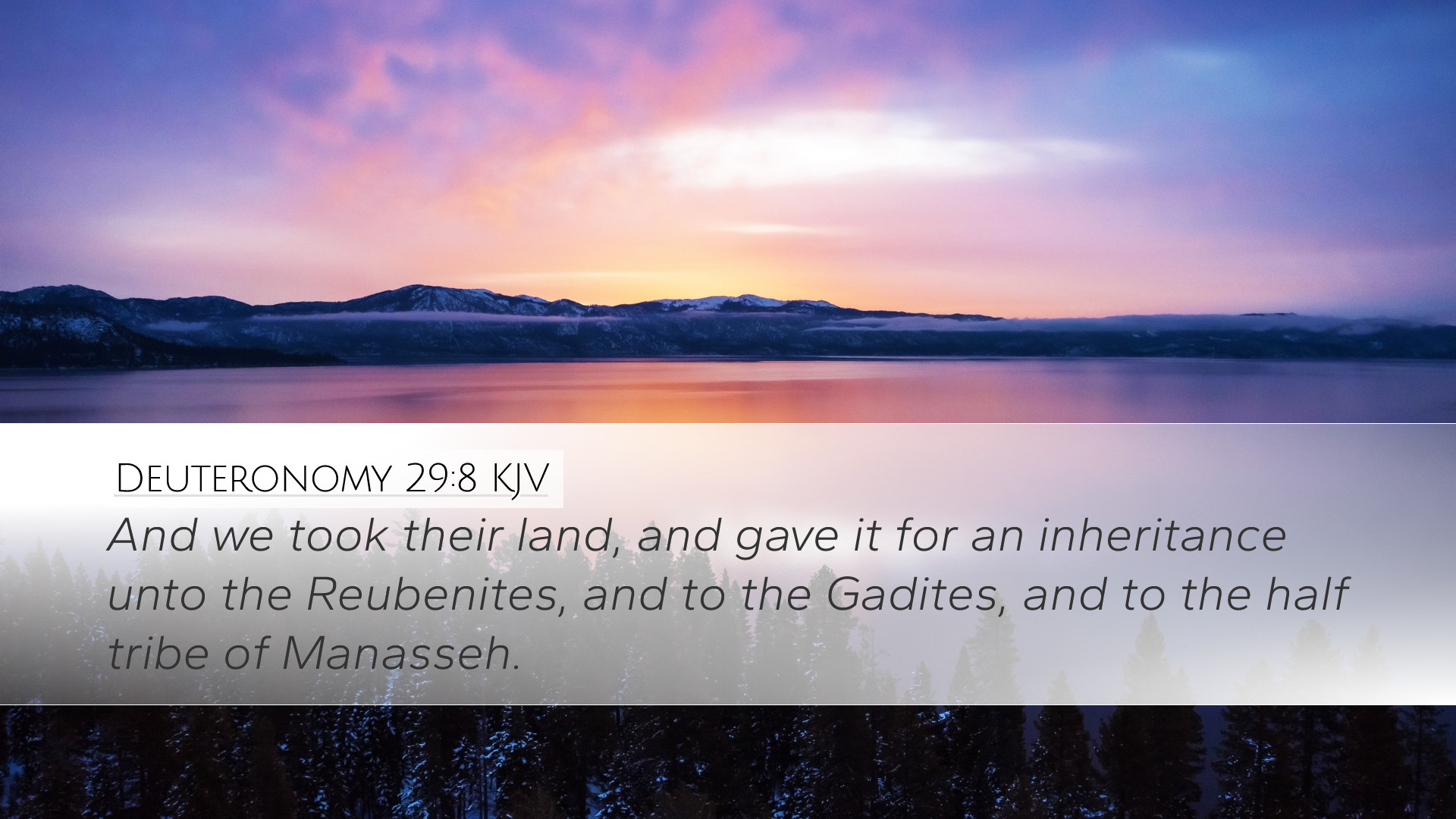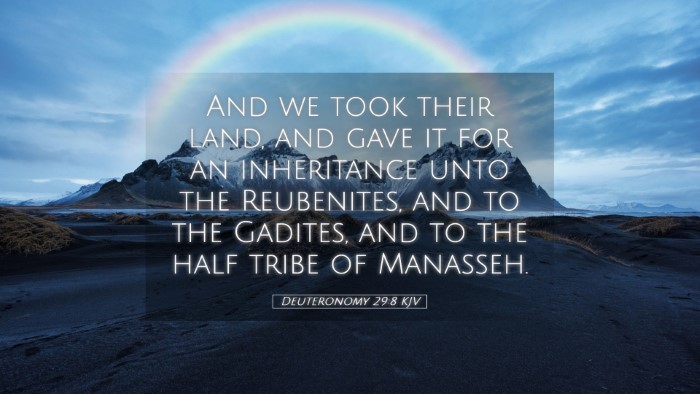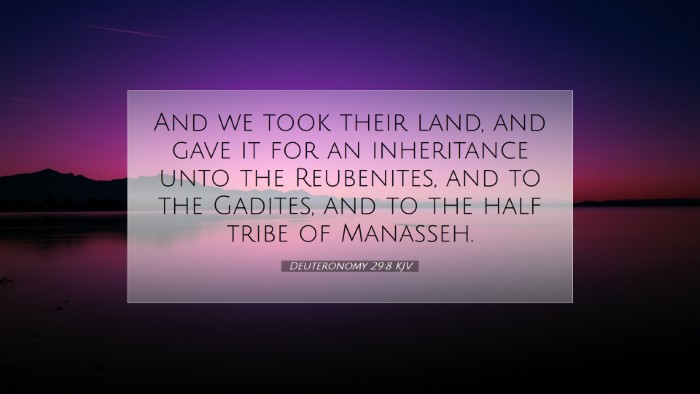Commentary on Deuteronomy 29:8
Verse Reference: Deuteronomy 29:8 - “And we took their cities, which were a inheritance unto the Reubenites, and the Gadites, and the half tribe of Manasseh; and we gave them for a possession.”
Historical Context
The Book of Deuteronomy serves as a covenant renewal document in which Moses delivers a series of addresses to the Israelites before they enter the Promised Land. The specific verse addresses the allocation of land to the tribes of Reuben, Gad, and the half-tribe of Manasseh, who settled on the east side of the Jordan River.
Theological Insights
In examining Deuteronomy 29:8, it is essential to note that this allocation of cities and lands is indicative of God's faithfulness to His covenant people. The land given to the tribes signifies God's provision and the fulfillment of His promise to the patriarchs.
-
Covenant Promises:
Moses reminds the Israelites of the covenant promises made to their ancestors. The land represents not only physical provision but also spiritual heritage and the relationship God established with Israel.
-
Military Victory:
The mention of taking cities indicates the military conquests under Moses' leadership, highlighting God's sovereignty in granting victory against formidable foes.
Commentary Extracts
Matthew Henry's Commentary
Matthew Henry emphasizes the idea of divine providence in the taking of cities. He posits that these cities were gifts from God, symbolizing His power and the need for obedience from His people. Henry notes that the distribution of land reflects both God’s justice in rewarding faithful service and the communal aspect of inheritance among the tribes.
Albert Barnes' Notes
Albert Barnes draws attention to the significance of the land being presented as an inheritance. He highlights that the east side of the Jordan was not part of the originally promised land but was granted due to the requests of these tribes. This concession illustrates the balance between divine intention and human request in God’s plan for Israel.
Adam Clarke's Commentary
Adam Clarke elaborates on the implications of ‘taking’ the cities, suggesting that it represents a theological theme of conquest and possession as a means of acquiring the blessings of God. Clarke notes that the emphasis on the specific tribes receiving portions hints at God’s intention of fulfilling the unique purposes and identities of each tribe.
Application for Modern Readers
For present-day believers, Deuteronomy 29:8 is a call to acknowledge God’s provision and promises. It encourages faithful stewardship of the gifts and responsibilities entrusted to them, emphasizing the importance of collective heritage in Christ.
-
Faithfulness in Stewardship:
Like the Israelites with their allotted land, believers are called to steward the gifts God has given them, including their spiritual gifts, resources, and communities.
-
Collective Identity:
This verse serves as a reminder of the importance of community within the body of Christ. Individualistic pursuits can be reframed within the context of collective worship and identity.
Conclusion
Deuteronomy 29:8 encapsulates key themes of God’s faithfulness, covenant promises, and the significance of collective identity among God's people. By integrating insights from historical, theological, and pastoral perspectives, this commentary serves as a valuable resource for pastors, students, and theologians as they seek to understand the depth of Scripture and its relevance to contemporary life.


